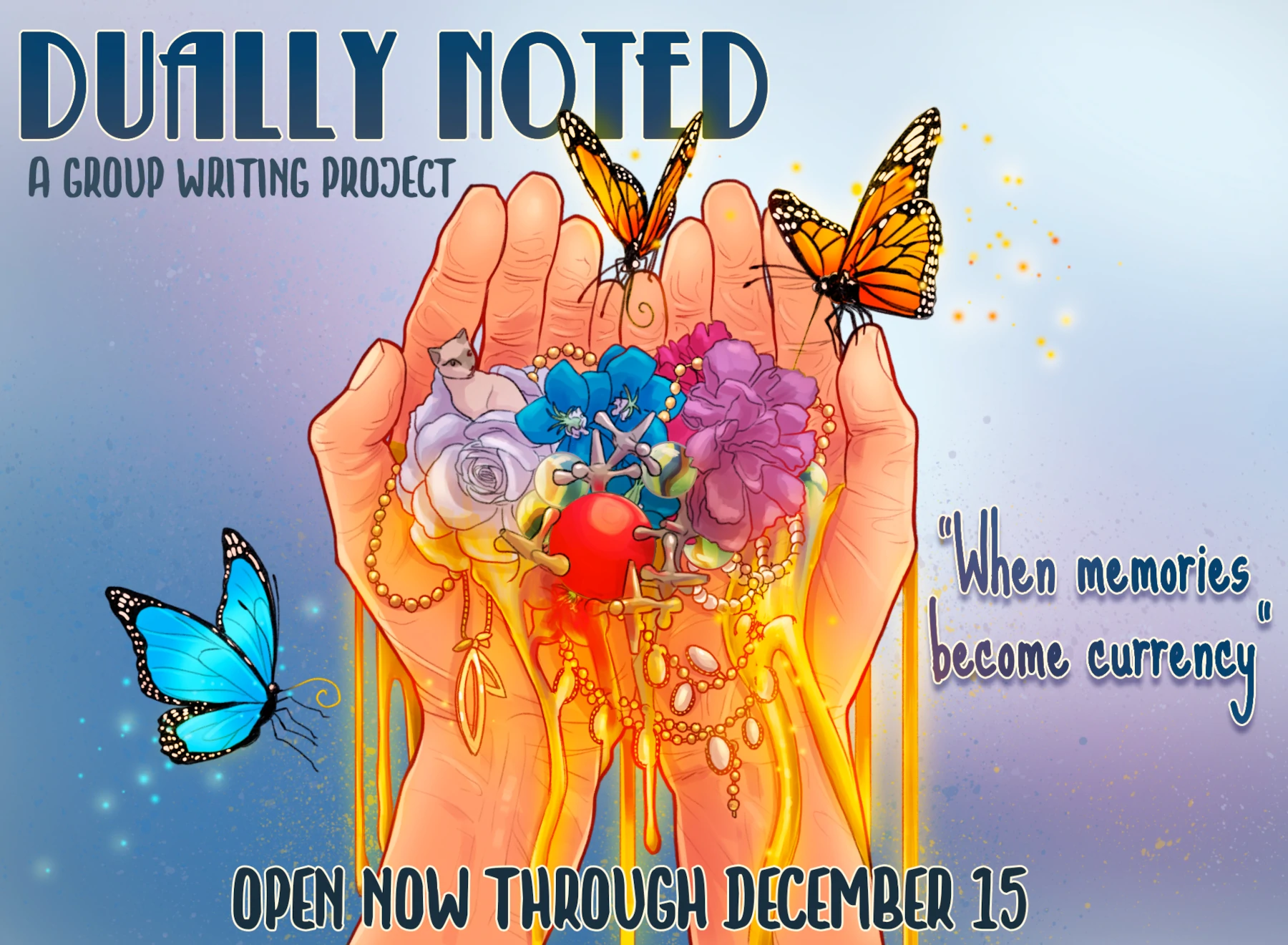
I Need to Go Grocery Shopping
Words By Canyon Reese, Art By Hailey Brown
She pauses the advertisement on a picture of a couple smiling atop a mountain overlooking a scenic valley. Their teeth are as reflective as the sunglasses they wear, and their clothing is free from any wear or tear. “Turn your memory into money!” is suspended in a cyan box to the left of the couple. She’s seen social media charging people to use their platforms, but this is the first time she’s seen one willing to pay people to post pictures of themselves. It feels invasive, as if companies are no longer buying people’s data discretely but opting to buy it directly from its users instead. She feels disgusted with the idea, as if she’s becoming a type of product for sale.
But she needs money for groceries, and it seems easy enough to sign up.
She’s swiping through pictures, trying to find something to post. The first picture she took was from a few years ago when she got a new phone. Maybe with a nice little timeline photo dump, she could afford something besides instant ramen.
Swiping through her old photos fills her with instant regret. The camera roll is filled with pictures of people she no longer has contact with—old friends, family members, and partners fly across her phone screen. Memories of the painful goodbyes that led to their departures occupy her mind, and she briefly forgets why she’s looking through them to begin with.
She notices one face among the pictures that seems out of place and unrecognizable. The person is smiling, but there’s something lacking behind it, as if someone else is trapped inside. With every swipe, every change of scenery and crowd, the person’s face also starts to change. Their eyes begin to light up, and their smile grows wider, but their face becomes softer and rounder. Their hair changes with it, from short and brushed over with an undercut, to grown longer all around, and then with cut bangs.
The face shifts and morphs with each passing picture until she recognizes them.
Looking at the most recent picture, with a time stamp from last week, she sees herself and a couple of close friends in her apartment. It’s a candid shot of her eating pizza, desperately trying not to laugh while extending the slice as far as she can, with the cheese stretching along. Her friends are sitting next to her, staring awestruck at the scene.
She looks up from the phone and back to the computer screen. The ad reads, “Turn your memory into money!”
She takes a moment to study the phrase, the trademark symbol at the end burning through her eyes, causing a pulsating headache in the front of her skull. Glancing once more at the picture on her phone, she guides the mouse to the top right of the screen and exits the webpage.
She gets up from her chair, hungry for cheap ramen.